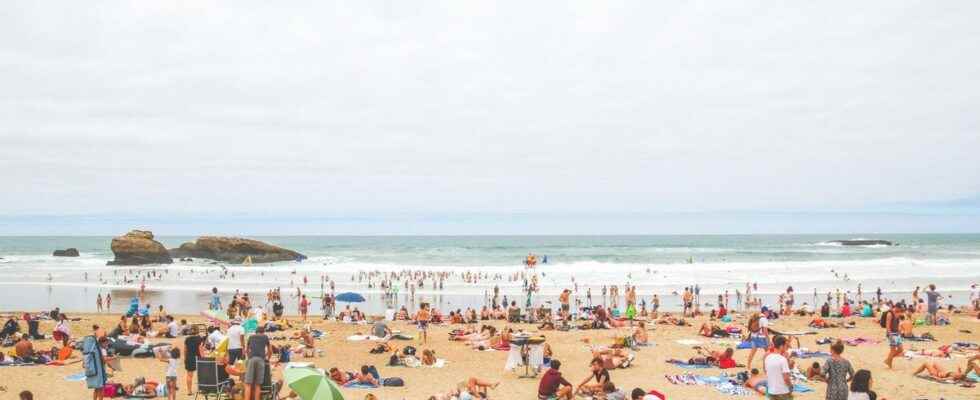Posted ,
Reading 2 mins.
Appearing for the first time on the Basque coast in August 2021, the Ostreopsis microalgae is once again making headlines. Dr. Barucq, general practitioner, gives us some advice on how to react in the event of exposure.
Sore throat, nosebleeds, difficulty breathing, fever, tremors… The presence of Ostreopsis in the water can cause many respiratory and/or skin problems. Better to be wary of it.
Swimming and microalgae: be careful, be careful!
It had wreaked havoc on the Basque coast in August 2021. Ostreopsis, this microalgae invisible to the naked eye, causes various respiratory and skin symptoms in swimmers, surfers and walkers.
When it is present en masse, “it can sometimes take the form of gelatinous brown matter on the surface, in deposits on rocks and on macroalgae”, indicates the prefecture. Another significant clue: the presence of Ostreopsis can give the water a metallic taste.
“Nevertheless, as it is generally invisible to the naked eye, painless and colorless, it is very difficult to detect it. When we spot it, it is already often too late, we are intoxicated”, warns Dr. Barucq.
In terms of symptoms, exposed people may experience flu-like/irritant or skin symptoms, often not serious: cough, sore throat, runny nose and eyes, nosebleeds, difficulty breathing, fever, tremors, muscle aches, headaches. head, nausea, rashes…
These signs may appear within 6 hours after exposure and usually disappear within 3 to 4 days.
If the symptoms persist and worsen (marked respiratory discomfort, muscle pain and prolonged tremors), the Nouvelle-Aquitaine Regional Health Agency recommends “Seek prompt medical attention and call the poison control center“specifying any exposure to microalgae.
“People who are fragile, allergic or who have already reacted badly to this seaweed, should avoid the seaside”says the doctor.
Note that this microalgae can affect the health of residents and/or people who work near the beaches. “Its toxins can disperse in sea spray and affect people (by inhalation), even if they don’t bathe.” specifies the prefecture.
In the event of an alert linked to the presence of this microalgae, the ARS recommends adopting a few good habits in order to avoid exposure to the microalgae and/or the aggravation of symptoms:
- After swimming, it is recommended to take a shower (body and hair);
- After fishing, it is advisable, as with all fish, to gut them (even the small ones) before consuming them (and not to consume other seafood such as molluscs, crustaceans, etc.);
- Fragile people (with a history of ENT, lung disease, allergies, cardiovascular disease, etc.) should not go to the beach and its surroundings.
Appearing for the first time in 2021, this algae was not previously known and studied in the Basque Country. “A research contract has now been signed between the Basque Country Agglomeration Community, IFREMER and Rivage Pro Tech to improve knowledge of microalgae of the genus Ostreopsis present on the Basque coast.“, specifies the ARS of New Aquitaine.
